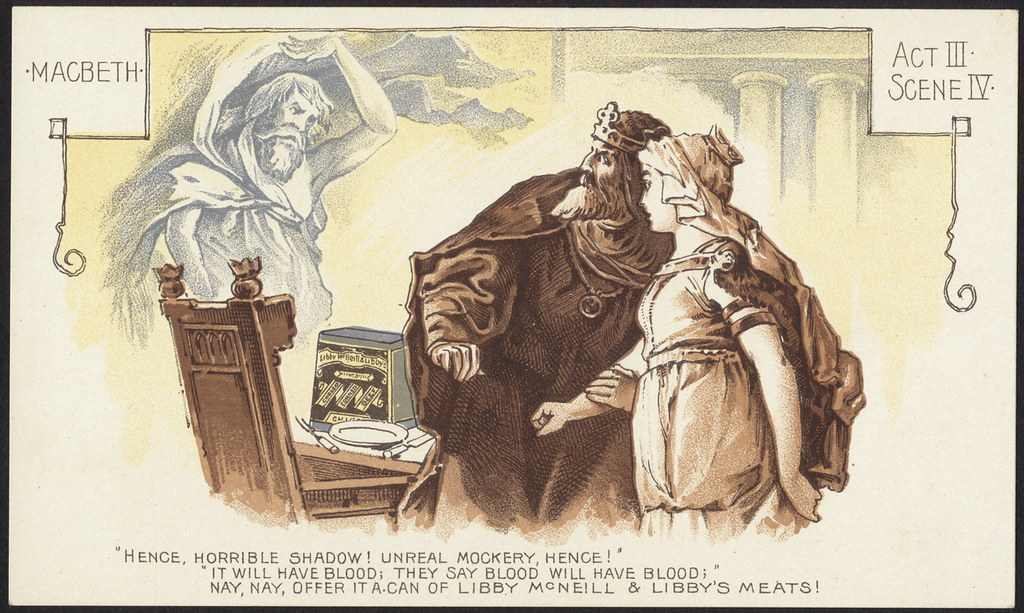
Have you ever paused to consider the hidden histories lurking within the everyday phrases we toss around so casually? Our language is a living, breathing archive, constantly evolving yet often clinging to echoes of its past, sometimes to incredibly surprising and even unsettling origins. It’s truly fascinating how a common idiom, uttered without a second thought, can trace its roots back to something far more sinister or stark than its modern usage suggests.
Imagine saying something seemingly innocuous, only to realize that its very foundation lies in a grim historical event, a brutal wartime practice, or a tragic occupational hazard. This isn’t just about dusty etymology; it’s about uncovering the unexpected layers of human experience woven into the fabric of our speech. It’s a testament to how profoundly history, even the darkest parts of it, shapes the way we communicate.
We’re about to embark on a curious journey, peeling back the layers of some remarkably common phrases to reveal their surprisingly dark beginnings. Prepare to have your perceptions challenged as we dive into a world where familiar words take on an entirely new, often shocking, significance. Get ready to never look at these everyday expressions the same way again.

1. **Mad as a hatter**This whimsical-sounding phrase, often conjuring images of Lewis Carroll’s delightfully eccentric character from *Alice’s Adventures in Wonderland*, actually carries a surprisingly grim historical weight. Far from being a mere figment of literary imagination, the idea of a hatter being ‘mad’ was rooted in a very real and tragic industrial reality that plagued workers for centuries. The seemingly innocent craft of hat-making was, for a long time, inextricably linked to a debilitating and often fatal condition.
Indeed, hat-makers in the 18th and 19th centuries frequently suffered from profound mental deterioration. This wasn’t due to the stress of fashion trends or difficult customers; it was a direct consequence of mercury poisoning. The process of making felt for hats often involved the use of mercury nitrate, a highly toxic chemical. Workers, exposed day in and day out to the mercury vapors, absorbed the poison into their bodies, leading to a range of severe neurological symptoms that manifested as what was colloquially known as ‘madness.’
Symptoms could include tremors, irritability, extreme shyness, paranoia, and, most notably, a decline in cognitive function that could easily be mistaken for insanity. So, when people in those eras spoke of someone being ‘mad as a hatter,’ they weren’t just making a lighthearted observation; they were referring to a genuinely tragic and well-recognized occupational hazard that left its victims with devastating mental and physical afflictions. The phrase serves as a stark reminder of the often-hidden human cost behind the products of past industries.
Read more about: Car Buying Hacks: 11 Insider Tips to Outsmart Any Dealership

2. **Meet a deadline**Today, the phrase ‘meet a deadline’ is a ubiquitous part of professional and personal life, evoking images of journalists rushing to submit their stories, students cramming for exams, or project managers striving to hit key milestones. It signifies a temporal constraint, a point by which something absolutely must be completed. Yet, beneath this seemingly mundane and modern usage lies an origin story that is shockingly literal and deeply disturbing, far removed from the pressures of a busy work schedule.
To ‘meet a deadline’ originally referred to an actual, physical line with life-or-death implications. During the American Civil War, prison grounds often featured a ‘deadline’ — a stark boundary line drawn a short distance from the inner wall or fence of the prison enclosure. This wasn’t merely a suggestion or a warning; it was an absolute demarcation with dire consequences for anyone who dared to cross it.
Escaping prisoners, or indeed any prisoner who even inadvertently stepped beyond this ‘deadline,’ would be immediately shot dead by the guards without warning. The phrase, therefore, embodies a chilling finality and a brutal certainty of consequences. Its modern use, though devoid of the immediate threat of violence, retains that underlying sense of unavoidable obligation and the severe repercussions of failure. It’s a powerful echo of a grimmer past, where ‘missing the deadline’ had a far more terrifying meaning than simply submitting a report late.
Read more about: Satellite Revelations Detail North Korea’s Struggle to Salvage Damaged Warship, Hint at Potential Russian Aid

3. **To wreak havoc**When we speak of ‘wreaking havoc’ today, we typically envision chaos, destruction, or disruption, often in a metaphorical sense. A sudden storm might ‘wreak havoc’ on a town, or an unexpected policy change could ‘wreak havoc’ within an organization. While the connotation has always been negative, its contemporary usage rarely approaches the terrifying, literal implications of its historical origin. This phrase carries a legacy of sanctioned brutality, a chilling command from the battlefield of yesteryear.
Historically, ‘havoc’ was more than just a word describing disorder; it was a specific, literal cry delivered on the battlefield. When a military commander or a designated officer shouted the word ‘havoc,’ it served as an explicit order that granted soldiers permission to commit widespread slaughter or other heinous crimes without restraint. It was a terrifying signal to cease quarter, to plunder, burn, and kill to their heart’s content, essentially unleashing unbridled ferocity upon the enemy or captured towns.
This practice of issuing the ‘cry of havoc’ was so brutally effective and indiscriminate that it was eventually outlawed in England during the 1300s, deemed an excessively cruel and disruptive military tactic. The very act of uttering ‘havoc’ meant the removal of all rules of engagement, granting license to commit atrocities that were otherwise forbidden. Thus, while we use the phrase today to describe generalized disruption, its true dark origin is rooted in a literal command for unrestrained violence and devastating destruction, a chilling testament to humanity’s capacity for organized brutality.
After unearthing the startling truths behind phrases like “mad as a hatter,” “meet a deadline,” and “to wreak havoc,” it’s clear that our language holds more secrets than we often realize, subtly reflecting the often-harsh realities of history. Each word and idiom, no matter how commonplace, can be a time capsule, preserving echoes of bygone eras and the compelling, often unsettling, experiences that shaped them, challenging our modern perceptions. As we continue our linguistic expedition, we’re poised to uncover even more of these etymological surprises, revealing how seemingly simple expressions carry profound legacies from literary masterpieces, ancient religious narratives, and intense combat zones. These aren’t just historical footnotes; they are vivid reminders of how deeply intertwined language is with the very fabric of human history, continuously evolving yet retaining fascinating vestiges of its past. Prepare to delve further into this captivating world, where the casual words we speak conceal astonishing tales just waiting to be told, forever altering how you perceive the phrases you use every day.
Read more about: 18 Things You Should NEVER Leave in Your Car (And Why)

4. **Be-all, end-all**In our contemporary lexicon, to describe something as the “be-all and end-all” is to signify its ultimate importance, its defining characteristic, or the singular goal that supersedes all others, implying a definitive culmination or pinnacle. Whether referring to a groundbreaking scientific discovery as the be-all and end-all of modern research or a particular sporting event as the absolute pinnacle of an athlete’s career, this phrase succinctly encapsulates a sense of finality and supreme significance, suggesting nothing further is required or could surpass it. It’s a declaration of a definitive and paramount conclusion, conveying that something is utterly complete and supremely vital, leaving no room for improvement or addition within its given context. This idiom, while conveying a sense of finality and ultimate purpose in everyday conversations, masks a profoundly dramatic and grim origin that underscores its potency.
The true weight of this phrase becomes startlingly clear when we trace its lineage back to the master wordsmith himself, William Shakespeare, whose unparalleled influence on the English language remains a testament to his literary excellence. It was in the chilling soliloquy of Macbeth, contemplating the assassination of King Duncan, that this powerful phrase first echoed into existence, forever linking its meaning to a moment of ultimate, irreversible action. Macbeth, grappling with the profound moral and existential consequences of the regicide, muses that if the act itself could truly be “the be-all and the end-all”—meaning, if it could be done and conclude everything without future repercussions or judgment—then he would commit the deed swiftly, without hesitation, even at the cost of eternity. This deeply unsettling context imbues the phrase with its original sense of a singular, decisive act meant to achieve a finality that, tragically, often eludes its perpetrators.
Thus, when we casually employ “be-all and end-all” today to describe a career goal or a cherished possession, we are unknowingly tapping into a linguistic inheritance steeped in themes of ambition, moral corruption, and inescapable consequence, reminding us of the enduring power of literature to shape our very speech. Shakespeare’s ingenious coinage not only provided a succinct way to articulate ultimate significance but also subtly carried the heavy, fateful resonance of Macbeth’s desperate desire for a clean, final break from the repercussions of his dark deeds. This phrase, born from the depths of one of literature’s most profound tragedies, serves as a fascinating linguistic artifact, demonstrating how the intense human drama of the past continues to live on, woven into the very fabric of our common expressions, giving them layers of meaning we rarely consider.
Read more about: Bring Back a Legend: 19 Classic Cars Perfect for Restoration and Hot Rodding

5. **Wash one’s hands**To “wash one’s hands” of a situation today is a common and evocative way to declare a deliberate disengagement from responsibility, a conscious act of relinquishing involvement or culpability for an outcome, signaling a clear separation from the matter at hand. We use it when someone decides to step back from a difficult project, refuses to take blame for a problem, or simply chooses not to intervene in a dispute, effectively removing themselves from the moral or practical consequences. It implies a conscious and often public detachment, a symbolic cleansing of oneself from any further entanglement or blame, indicating that the individual wishes to bear no part of the burden or outcome. This seemingly straightforward idiom, indicating a desire for innocence or detachment, carries an astonishingly literal and morally fraught origin from one of the most pivotal narratives in Western civilization.
This compelling phrase derives directly from the New Testament of the Bible, specifically from the narrative surrounding the trial and condemnation of Jesus Christ, marking a moment of profound moral abdication. In the biblical account, Pontius Pilate, the Roman governor, faced with the clamoring crowd demanding Jesus’s crucifixion, finds himself in a moral quandary; he perceives no guilt in Jesus yet is pressured by the angry mob. In a dramatic gesture to absolve himself of any responsibility for the impending execution, Pilate literally takes a basin of water and washes his hands before the crowd, publicly declaring, “I am innocent of this man’s blood; see to it yourselves.” This powerful, symbolic act was meant to shift the burden of judgment and consequence entirely onto the people, distancing himself from the brutal outcome.
The lasting impact of this single, symbolic act on language is immense, transforming a simple physical action into a profound metaphor for moral disengagement and the relinquishing of responsibility. Even centuries later, the phrase vividly conveys a sense of detachment from guilt or blame, echoing Pilate’s attempt to cleanse himself of a dire decision, whether or not true culpability is actually avoided. It’s a striking example of how a singular, deeply significant historical-religious moment can imbue an everyday action with layers of moral complexity, offering a powerful linguistic tool to express a desire for non-involvement, even when the consequences may be far-reaching and unavoidable.
Read more about: 12 Smart Ways 11-Year-Olds Can Earn Money & Learn Life Lessons

6. **Diehard fan**Today, the term “diehard fan” is ubiquitously used to describe an individual who exhibits unwavering, passionate, and often lifelong devotion to a sports team, a musical artist, a particular brand, or any cause, demonstrating an intense loyalty that persists through thick and thin. This phrase conjures images of ardent supporters who stand by their chosen allegiance despite setbacks, losses, or unpopularity, showcasing a resilience and dedication that borders on the extreme. It’s a badge of honor for those who refuse to abandon their passion, implying a commitment that will endure no matter the circumstances, embodying a steadfastness that truly sets them apart from casual admirers. However, the origin of this seemingly benign descriptor of intense fandom is rooted in a much more brutal and literal sense of unyielding persistence in the face of annihilation.
Historically, the word “diehard” carried a far more grim and literal connotation, serving not merely as an adjective but, in some instances, even as a stark, desperate command, intrinsically tied to the battlefield and moments of extreme peril. Its earliest documented uses refer to soldiers, or groups of them, who fought with such incredible tenacity and ferocity that they proved exceptionally difficult to defeat or kill, exhibiting an almost superhuman resilience in combat. These were individuals who literally “died hard,” enduring grievous wounds and overwhelming odds yet continuing to resist with every fiber of their being, making the process of subduing them an arduous and bloody endeavor for their adversaries. The phrase emerged from witnessing acts of incredible fortitude and refusal to surrender, even when facing certain death.
This powerful historical meaning, born from the crucible of combat, reveals a fascinating linguistic evolution as “diehard” transitioned from the literal fight for survival to the metaphorical battles of loyalty in modern society. While its modern application to sports enthusiasts or music lovers may seem a far cry from its violent genesis, the core essence of unyielding, relentless commitment remains strikingly intact, echoing the stubborn refusal to yield that characterized those original “diehards.” The term, therefore, serves as a vivid reminder that even the most seemingly innocuous contemporary expressions can carry whispers of a grimmer, more arduous past, illustrating how language adapts and softens over time while retaining the powerful kernel of its initial, visceral meaning, forever connecting our present speech to distant historical struggles.
As our linguistic journey through these surprising origins concludes, it becomes undeniably clear that the phrases we use every day are far more than mere strings of words; they are profound linguistic relics, each carrying a unique historical fingerprint. From the chilling industrial realities of ‘mad as a hatter’ to the stark battlefield cries of ‘to wreak havoc,’ and from Shakespeare’s tragic introspection to biblical acts of perceived absolution, our language serves as a vibrant, ever-evolving archive of human endeavor and experience. It’s a testament to the enduring power of history, literature, and even the most brutal moments of our past, to subtly shape the way we communicate, inviting us to look beyond the surface and marvel at the hidden depths of meaning embedded within our speech. So, the next time you utter one of these common expressions, take a moment to ponder the rich, often startling, stories they silently tell, and appreciate the unexpected ways in which our past continues to resonate in our present.


.jpg)
